-
E-mail
Austin120521@outlook.com -
E-mail
sales@jujiuhouse.com -
Telephone
+86-17864099991 -
Telephone
+86-17854044442
- Chinese
- French
- German
- Portuguese
- Spanish
- Russian
- Japanese
- Korean
- Arabic
- Irish
- Greek
- Turkish
- Italian
- Danish
- Romanian
- Indonesian
- Czech
- Afrikaans
- Swedish
- Polish
- Basque
- Catalan
- Esperanto
- Hindi
- Lao
- Albanian
- Amharic
- Armenian
- Azerbaijani
- Belarusian
- Bengali
- Bosnian
- Bulgarian
- Cebuano
- Chichewa
- Corsican
- Croatian
- Dutch
- Estonian
- Filipino
- Finnish
- Frisian
- Galician
- Georgian
- Gujarati
- Haitian
- Hausa
- Hawaiian
- Hebrew
- Hmong
- Hungarian
- Icelandic
- Igbo
- Javanese
- Kannada
- Kazakh
- Khmer
- Kurdish
- Kyrgyz
- Latin
- Latvian
- Lithuanian
- Luxembou..
- Macedonian
- Malagasy
- Malay
- Malayalam
- Maltese
- Maori
- Marathi
- Mongolian
- Burmese
- Nepali
- Norwegian
- Pashto
- Persian
- Punjabi
- Serbian
- Sesotho
- Sinhala
- Slovak
- Slovenian
- Somali
- Samoan
- Scots Gaelic
- Shona
- Sindhi
- Sundanese
- Swahili
- Tajik
- Tamil
- Telugu
- Thai
- Ukrainian
- Urdu
- Uzbek
- Vietnamese
- Welsh
- Xhosa
- Yiddish
- Yoruba
- Zulu
- Kinyarwanda
- Tatar
- Oriya
- Turkmen
- Uyghur

z type folding container house
The Practical Reality of Z Type Folding Container Houses
Z type folding container houses have gained significant attention as a flexible housing solution, but there are nuances and challenges to understand. While they promise portability and efficiency, real-world applications reveal complexities that only those with hands-on experience might appreciate.
Understanding the Basics
When it comes to Z type folding container houses, the promise seems straightforward: a portable, easy-to-assemble structure that caters to diverse needs. However, understanding how these structures behave under different environmental conditions is crucial. Many assume they're a simple click away from ready – not quite.
Take, for example, the assembly process. While marketed as user-friendly, the reality is that it requires a well-coordinated team to ensure a correct setup. Weather conditions can further complicate this. That’s where companies like Shandong Jujiu Integrated Housing Co., Ltd. come into play, offering the expertise necessary for seamless integration.
Additionally, one must consider local regulations. Folding container houses are subjected to zoning laws and building codes, which vary significantly by region. It's not uncommon to face unexpected delays due to bureaucratic hurdles, something prospective users should prepare for.
Material and Design Considerations
The materials used in these houses can vary widely, impacting durability and insulation. Z type folding container houses need to withstand diverse climates. Therefore, an understanding of material science is beneficial. Shandong Jujiu Integrated Housing Co., Ltd. is well-known for its R&D efforts in optimizing these materials to cope with regional climates.
Design customization is another feature often highlighted. While theoretically sound, actual modification can be limited by structural constraints. Companies often offer standard layouts that can be altered slightly, but don't expect a complete architectural overhaul.
Effective design and material choices go hand-in-hand. For instance, the insulation properties need careful consideration, especially in areas with extreme temperatures. Balancing cost and performance is key, and often requires direct consultation with the manufacturer.
Case Studies from the Field
I recall a project in a coastal area where salt corrosion became a significant issue. The team underestimated maintenance needs, leading to unexpected costs. This instance highlighted the need for thorough site assessment before deployment. Shandong Jujiu Integrated Housing Co., Ltd.’s experience in such environments proved invaluable here.
In another rural deployment, the accessibility of the site posed a challenge. The containers needed transportable solutions that could navigate narrow roads. Such logistical headaches are often overlooked but are pivotal to the success of a project.
The upside, naturally, is the rapid installation once these logistical issues are addressed. The project quickly transitioned from transport to habitation within weeks, showcasing a key advantage of Z type folding container houses.
Installation Challenges
Installation frequently presents its own set of challenges. While installers often tout ease of setup, the reality involves careful groundwork preparation. Doing it right the first time avoids costly adjustments later.
The experience from Shandong Jujiu Integrated Housing Co., Ltd. suggests that a seasoned crew makes a notable difference. Poor foundation work can result in structural issues that compromise the entire house.
Additionally, transport restrictions can influence setup time. Some areas impose weight and size limitations on delivered components, demanding strategic planning and flexible solutions.
The Road Ahead
Looking forward, the future of Z type folding container houses hinges on technological advancements and regulatory adaptations. Shandong Jujiu Integrated Housing Co., Ltd. is at the forefront, driving innovation in design and material use.
The integration of smart home technology within these compact spaces might soon become standard, offering modern amenities in a portable package. However, this evolution will depend significantly on local infrastructure adaptability.
Ultimately, the success of these housing solutions will be judged by their ability to blend convenience with sustainability. Industry leaders continue to refine these aspects, ensuring folding container houses are more than a temporary trend.
Related products
Related products
Best selling products
Best selling products-
 Good Quality Modular Homes Prefabricated House Expandable Container House 20FT Mobile Flat Roof House
Good Quality Modular Homes Prefabricated House Expandable Container House 20FT Mobile Flat Roof House -
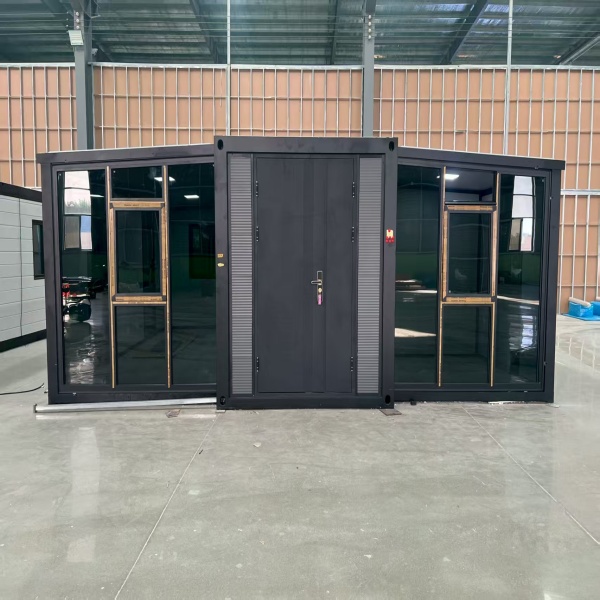 Customizable Office Mobile Home with Flat Roof and Double Wing Expansion Box, Convenient Container
Customizable Office Mobile Home with Flat Roof and Double Wing Expansion Box, Convenient Container -
 Factory Direct Sales Office Folding Container Luxury House Living Container House
Factory Direct Sales Office Folding Container Luxury House Living Container House -
 Dual-Wing Folding Container House: Fast Assembly, Space-Saving & Multi-Scene Adaptable
Dual-Wing Folding Container House: Fast Assembly, Space-Saving & Multi-Scene Adaptable -
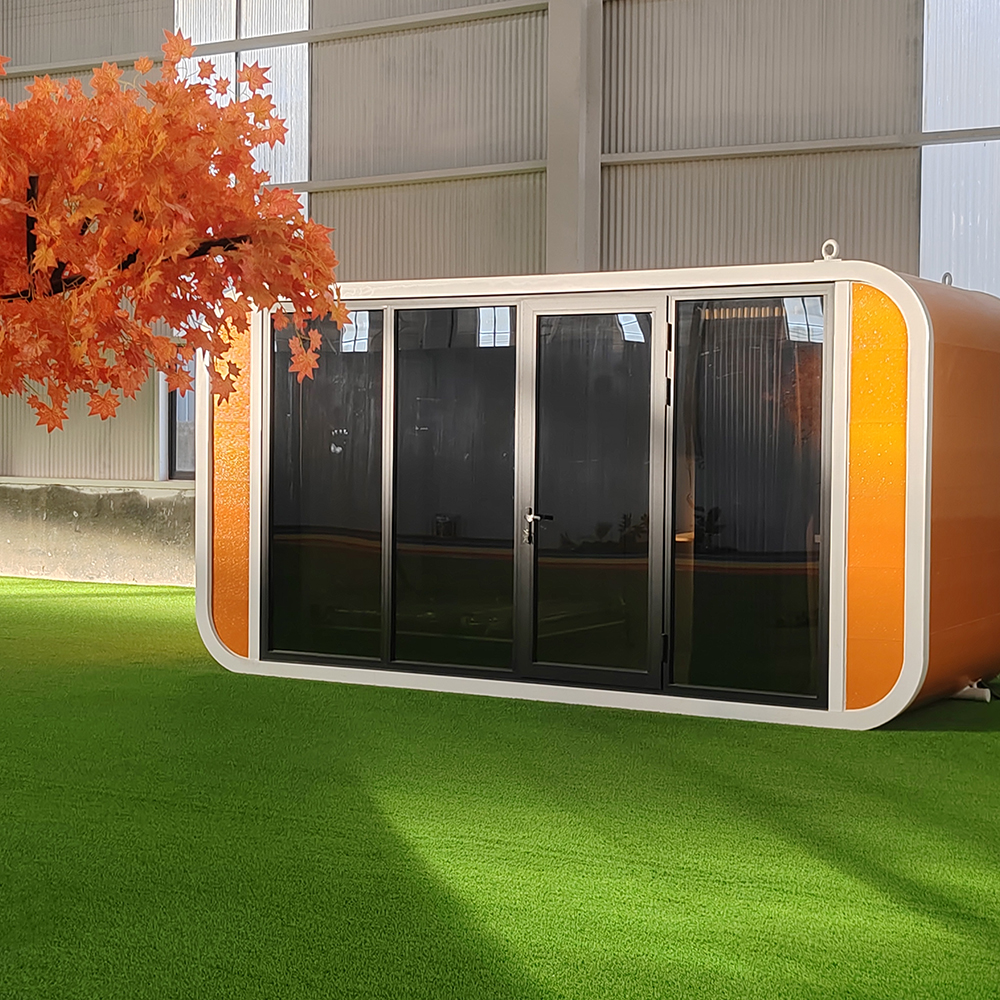 Luxury Prefabricated Living Container House Modular Glass Tiny House Prefab Container Home Apple Cabin
Luxury Prefabricated Living Container House Modular Glass Tiny House Prefab Container Home Apple Cabin -
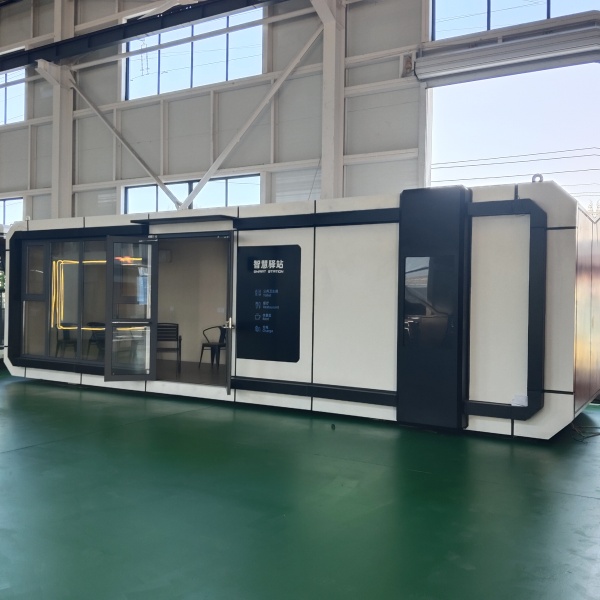 Modular modern movable apple cabins, customized high-end folk houses and portable bedrooms, delivered as a whole
Modular modern movable apple cabins, customized high-end folk houses and portable bedrooms, delivered as a whole -
 Customized Two Wing Folding Expandable Container House
Customized Two Wing Folding Expandable Container House -
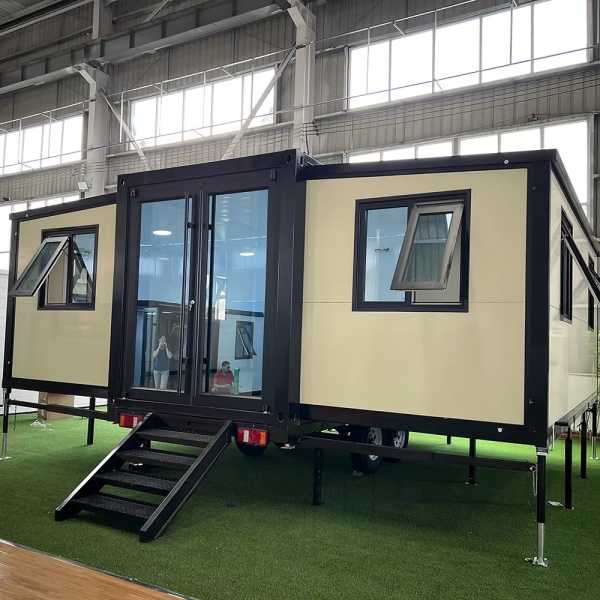 Stair Access Double Wing Expandable Container House | Easy Installation Mobile Office
Stair Access Double Wing Expandable Container House | Easy Installation Mobile Office -
Two Wing Folding Expandable Container House
-
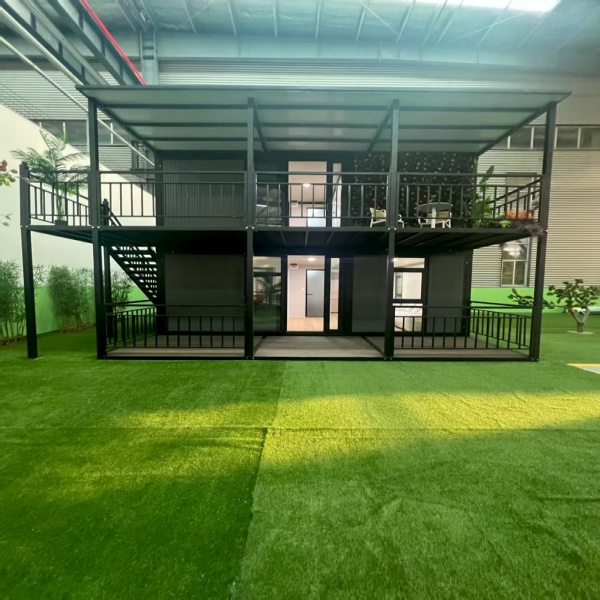 Luxury foldable two-story container houses in luxury resort hotels and villa hotels
Luxury foldable two-story container houses in luxury resort hotels and villa hotels -
 A container house with a terrace and double-wing folding design, suitable for various purposes such as offices, meeting rooms, living rooms, etc.
A container house with a terrace and double-wing folding design, suitable for various purposes such as offices, meeting rooms, living rooms, etc. -
 High-quality Double-wing Folding Container House with Doors and Windows, Insulated Walls, Suitable for Various Scenarios.
High-quality Double-wing Folding Container House with Doors and Windows, Insulated Walls, Suitable for Various Scenarios.
Related search
Related search- China Apple Cabin
- pre fab 2 bedroom prefab container house homes luxury
- China folding house trailer
- China folding house boxabl
- China folding prefabricated house
- China house that folds out
- China luxury space capsule
- folding prefabricated house
- Double-wing Folding Container House,Quick Assembly Container,IPX5 Waterproof House
- China expandable container house with ensuite










